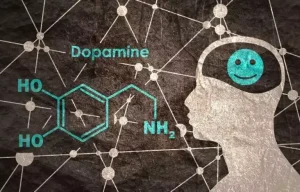Alcoholism Denial: Recognizing Signs, Causes, and Solutions

Some turn to alcohol to cope with trauma stemming from adverse childhood experiences such as abuse. People with an alcohol use disorder can be highly functioning or compromised. Learn more about what influences a person’s susceptibility to alcohol dependence and alcoholism and denial the warning signs, physical and behavioral symptoms, and stages of alcoholism. We publish material that is researched, cited, edited and reviewed by licensed medical professionals.

Identifying Symptoms of Alcoholism
The psychology behind denial involves rationalizing one’s behavior, shifting blame, and avoiding responsibility. It’s crucial to understand that having a parent with an alcohol use disorder doesn’t make it the individual’s fault. Research shows alcoholism treatment that there is indeed a genetic predisposition involved in developing alcohol addiction, which means factors beyond personal control come into play. Concealing is another sign of alcoholism denial, where individuals try to hide their drinking from others. They may go to great lengths to cover up their habits and avoid discussing the issue when confronted.
Effective Communication Strategies for Approaching an Alcoholic in Denial
- This denial makes them underestimate or ignore the seriousness of their drinking problem.
- If you know someone in denial about their alcohol disorder, here are some tips on how to talk to them.
- When you’re living with a high-functioning alcoholic, your own health is at stake as well as the welfare of your loved one.
- The person with alcohol use disorder may try to justify their behaviors or offer reasonable alternatives to why something happened.
- This deflection helps them maintain control over how others perceive their drinking while avoiding facing the reality that they may have an unhealthy relationship with alcohol.
- Alcohol may be a big part of their social life and friendships, or a coping mechanism for trauma, mental health issues, and severe stress.
- Some researchers also propose that denial may be the result of cognitive impairments linked to alcohol use disorder.
It’s crucial to avoid enabling behaviors that shield the individual from the consequences of their addiction, such as covering for them or downplaying the severity of the situation. Instead, focus on creating an environment that fosters honest communication and provides a safe space for the individual to acknowledge their struggles. Research indicates that high-quality communication with healthcare providers can lead to improved outcomes, highlighting the importance of these strategies in guiding individuals toward recovery. In order for you to have the emotional capacity to support the alcoholic through the ups and downs of drinking while in denial, you need to take care of yourself. Spend time with people who energize you, partake in relaxing and fun activities, and join an Al-Anon or another support group with people who understand what you’re going through. Treatment and recovery for an alcoholic in denial begins with selecting the appropriate course of action.

Stop drinking
- Keep communication open without judgment, and listen to their experiences and concerns.
- Adverse childhood experiences, such as neglect, abuse, or inconsistent caregiving, can lead individuals to develop narcissistic behaviors as a protective mechanism.
- It’s pivotal to voice your concerns compassionately without resorting to blame or criticism, which can often ignite defensiveness and deepen the denial.
- Medications may be administered to alleviate discomfort and manage withdrawal symptoms, and in some cases, to prevent relapse and maintain abstinence during the ongoing treatment for AUD.
When you’re worried about being judged or confronted about something, honesty can take a back seat. It may be easier for the person with alcohol use disorder to hide the truth than to be honest about their drinking habits. As a non-addict, you can’t understand how difficult it is to admit that you have a serious drinking problem. It may look obvious to you that your loved one has an alcoholism issue but know that it’s not all that =https://ecosoberhouse.com/ obvious to the alcoholic. After trying fruitlessly to help the addict in denial realize the extent of the issue, it’s natural to clam up and have a difficult time discussing the drinking with your loved one.
When alcoholism and denial go hand in hand, it is very difficult for the addict’s loved ones. The more the alcoholic denies drinking, the more you may doubt yourself, wondering if the alcoholic is indeed consuming too much alcohol. You may wonder how much alcohol is too much and whether or not their behaviors are normal.
Share this:
Category
- ! Без рубрики
- 1
- 2
- AI in Cybersecurity
- Alcohol Awareness
- Best way to quit alcohol
- bhnov
- blog
- Bookkeeping
- Budgeting Tips
- chnov
- Deaddiction center
- diabetes
- ed
- Financial Independence
- FinTech
- Forex Trading
- fr
- Healthy Life
- hello world
- How to quit alcohol
- IT Vacancies
- IT Образование
- Mindful Spending
- Money Management
- Money-Saving Strategies
- New Post
- nl
- pbnov
- Personal Finance
- potency
- punov
- rybelsus
- se
- Smart Money Choices
- Sober living
- Sober Savings
- Software development
- test content
- Wealth Building
- Форекс Обучение